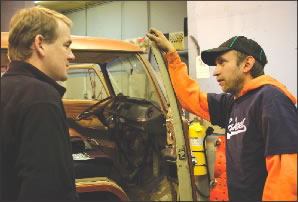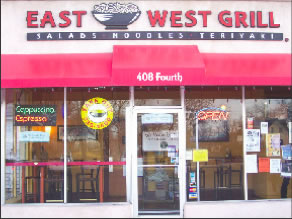Writers on the Range
by Joanne Wilke
My great-aunt Marie never had garbage to throw out. She spent her last 20 years cleaning out the barn, garage, basement and various assorted farm sheds, dispersing the wire, wood, nails, fishing poles, antique radios, and a lifetime of other valuables her husband had stockpiled.
Well into her 90s, she bought groceries in bulk and composted her food waste — except chicken bones, which she dried on top of the refrigerator and burned with her junk mail — after pulling out any blank-sided pages, which she used to write letters to me. When Marie died, the only thing left in her garage was a tower of Styrofoam carryout containers from Meals on Wheels. She’d washed and stored them, not knowing what else to do.
Some would say hers was a Depression mentality. But I believe there was more to it than that.
It was World War II that finally drew the world, including the United States, out of the Great Depression of the 1930s. But could the productivity, high energy and solidarity of wartime be maintained during peacetime? Victor Lebow, a retail analyst of the time, best expressed the accepted solution in the United States: “Our enormously productive economy … demands that we make consumption our way of life, that we convert the buying and use of goods into rituals, that we seek our spiritual satisfaction, our ego satisfaction, in consumption. We need things consumed, burned up, replaced, and discarded at an ever-accelerating rate.”
Yet today, 60 years later, many wonder if spiritual satisfaction can be attained through consumption. Despite all our things, many Americans apparently feel empty. Bill McKibben writes in his book Deep Economy, that despite American affluence, “all that material progress — and all the billions of barrels of oil and millions of acres of trees that it took to create it — seems not to have moved the satisfaction meter an inch.”
In 1900, each person consumed two metric tons of materials per year, and 41 percent of that was renewable. By 1995, it had risen to 10 tons per person per year, with only 8 percent renewable. Few people today remember firsthand a lifestyle not based on the post-war marketing of materialism. Marie lived through this transition.
Born in 1897, she and her nine siblings were raised on a farm that met most of their food and energy needs but offered little spending money. As a girl, her day began at dawn with the whirr of wind on feathers, as dozens of turkeys floated into the yard from their roost on the bluffs above her home. In spring, her often pregnant mother “scoured the cliffs,” gathering fertile turkey eggs hidden in the densest and most difficult terrain. Once the chicks hatched, Marie spent hours chopping boiled chicken eggs to feed them. She wore her father’s heavy fur coat all summer to keep the turkey gobbler, who weighed more than she did, from jumping on her.
At Thanksgiving, the turkeys were butchered and sold, and Marie and her siblings were given a bit of hard-earned turkey money. This was not for them to spend on themselves. It was so they could purchase Christmas gifts for each other.
Later, Marie was one of the first farm kids in the area to attend high school. Ultimately she earned her master’s degree in order to teach at the college level. During summers she traveled to Mexico, across the American West in a Model T and to Europe by boat. After World War II, Marie lived in Egypt for three years. She went there with a missionary group to establish a teacher’s school so the impoverished Egyptians could educate and improve themselves. While there, she created a student-teacher curriculum and established a library.
“I was lucky,” she said. “I’d already had dysentery in Mexico. Although that was no fun at the time, when I went to Egypt I could go into local people’s homes and eat and drink with them when no other American could.” This cultural immersion made the people real to her and helped her curriculum relate to their lives. In her old age, however, she was still distressed by the poverty she’d seen and by the fact that it still existed.
But hers was not a scarcity mentality, because she’d never been brainwashed to think material possessions were the bottom line, and the modern call of “reduce, reuse, recycle” emerged naturally from her experiences. As she aged and her world shrank, eliminating her garbage — or writing letters on it — gave her a sense of purpose, of connection, and even abundance.
Joanne Wilke is a contributor to Writers on the Range, a service of High Country News (hcn.org). She writes in Bozeman, Montana, and is the author of the new book, Eight Women, Two Model Ts, and the American West.


